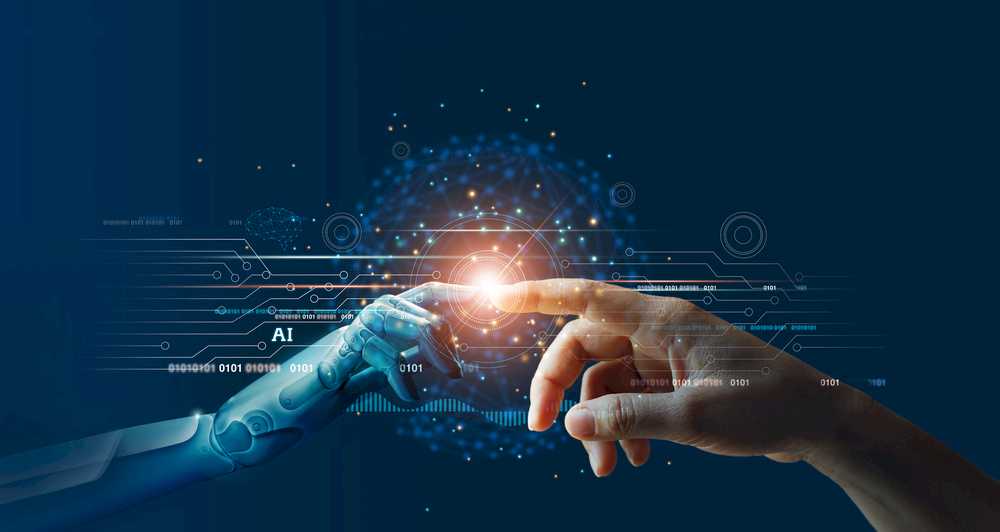
Artificial intelligence (AI) has been one of the most rapidly evolving and transformative technologies of the 21st century, and its future promises to be just as exciting and groundbreaking. As AI continues to develop and mature, it is expected to have a significant impact on almost every aspect of human society, from healthcare and education to transportation and manufacturing.
One of the most significant trends in the future of AI is the continued development and refinement of machine learning algorithms. Machine learning is a type of AI that allows computers to learn from data and make predictions or decisions based on that data. As machine learning algorithms become more sophisticated, they will be able to perform increasingly complex tasks, from medical diagnosis and treatment to financial forecasting and fraud detection.
Another major trend in the future of AI is the increasing use of natural language processing (NLP) and speech recognition technology. NLP enables computers to understand and interpret human language, allowing for more natural and intuitive interactions between humans and machines. Speech recognition technology, which is already widely used in products like Siri and Alexa, is expected to become even more sophisticated in the coming years, allowing for more accurate and reliable voice commands and interactions.
The rise of AI is also expected to have a significant impact on the job market, with many low-skill and routine jobs being replaced by automated systems and robots. However, AI is also expected to create many new jobs in fields such as data science, machine learning, and robotics, as well as in the development and maintenance of AI systems themselves.
In addition to these trends, there are also a number of ethical and societal questions that will need to be addressed as AI continues to develop. For example, there is a growing concern about the potential for AI to be used for malicious purposes, such as cyber attacks or the creation of autonomous weapons systems. There is also a need to ensure that AI is developed and deployed in a way that is fair and equitable, and that takes into account the needs and interests of all members of society.
Overall, the future of AI promises to be an exciting and transformative period of human history, with the potential to revolutionize almost every aspect of our lives. As we continue to develop and refine this powerful technology, it is important to remain vigilant and mindful of the potential risks and ethical considerations, while also embracing the tremendous opportunities that AI presents for the betterment of humanity.
As artificial intelligence (AI) continues to advance and become more integrated into various aspects of society, it is crucial to ensure that it is developed and used in a way that does not harm humanity. Here are some steps that could be taken to guarantee that AI will not be used to harm humanity:
Develop ethical frameworks and standards:
One of the most important steps in ensuring the responsible development and use of AI is to establish ethical frameworks and standards that govern its development and use. These frameworks should address issues such as transparency, accountability, and bias, and should be developed in collaboration with stakeholders from various sectors.
Promote transparency:
It is essential to ensure that the development and deployment of AI systems are transparent and understandable to stakeholders, including policymakers, experts, and the public. This could involve the development of clear and concise explanations of AI systems, as well as mechanisms for independent review and oversight.
Invest in research and development:
It is important to invest in research and development of AI to ensure that it is developed in a way that maximizes benefits to humanity and minimizes potential risks. This could involve funding research in areas such as explainability, fairness, and security, as well as promoting collaboration and sharing of knowledge and resources.
Foster collaboration and cooperation:
To ensure that AI is developed and used in a way that benefits humanity, it is important to foster collaboration and cooperation between stakeholders from various sectors, including academia, industry, government, and civil society. This could involve the establishment of multi-stakeholder initiatives that promote dialogue and exchange of ideas.
Establish legal and regulatory frameworks:
It is important to establish legal and regulatory frameworks that govern the development and use of AI. These frameworks could include regulations related to data privacy and security, liability and accountability, and transparency and explainability.
Ensure that AI is developed with a focus on human values:
Finally, it is essential to ensure that AI is developed with a focus on human values, such as fairness, accountability, and transparency. This could involve the development of guidelines and best practices that promote the ethical use of AI, as well as efforts to promote awareness and understanding of AI and its potential impact on society.
Ensuring the responsible development and use of AI is a complex and multi-faceted challenge that requires collaboration, investment, and ongoing attention. By taking steps to promote transparency, establish ethical frameworks and standards, invest in research and development, foster collaboration and cooperation, establish legal and regulatory frameworks, and ensure that AI is developed with a focus on human values, we can help to ensure that AI is used in a way that benefits humanity and minimizes potential risks.
